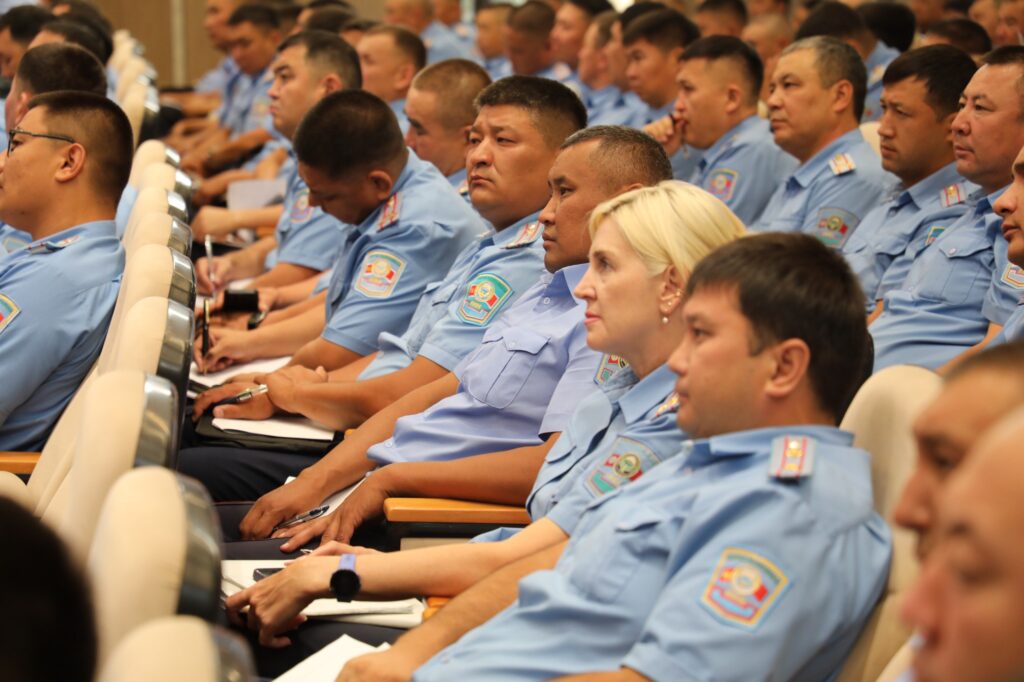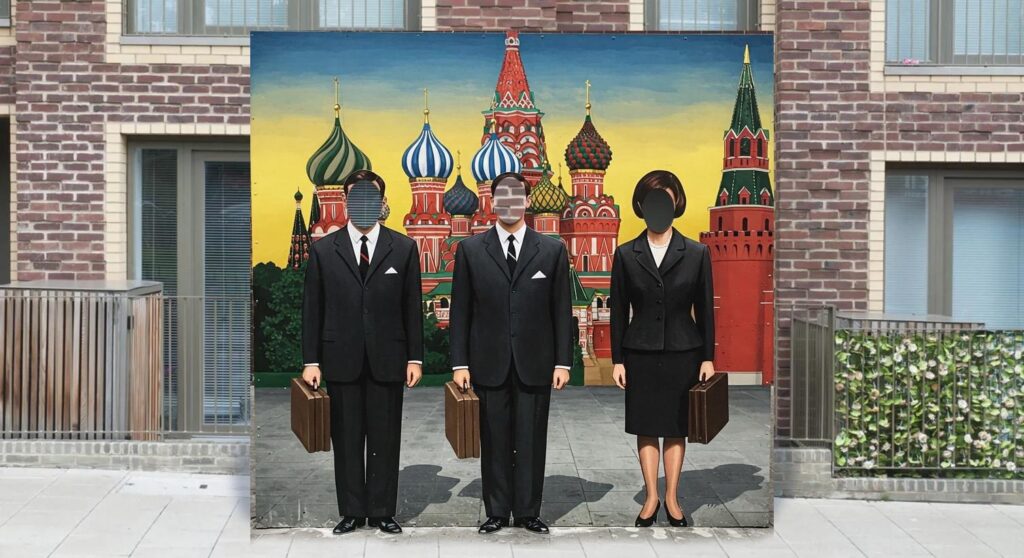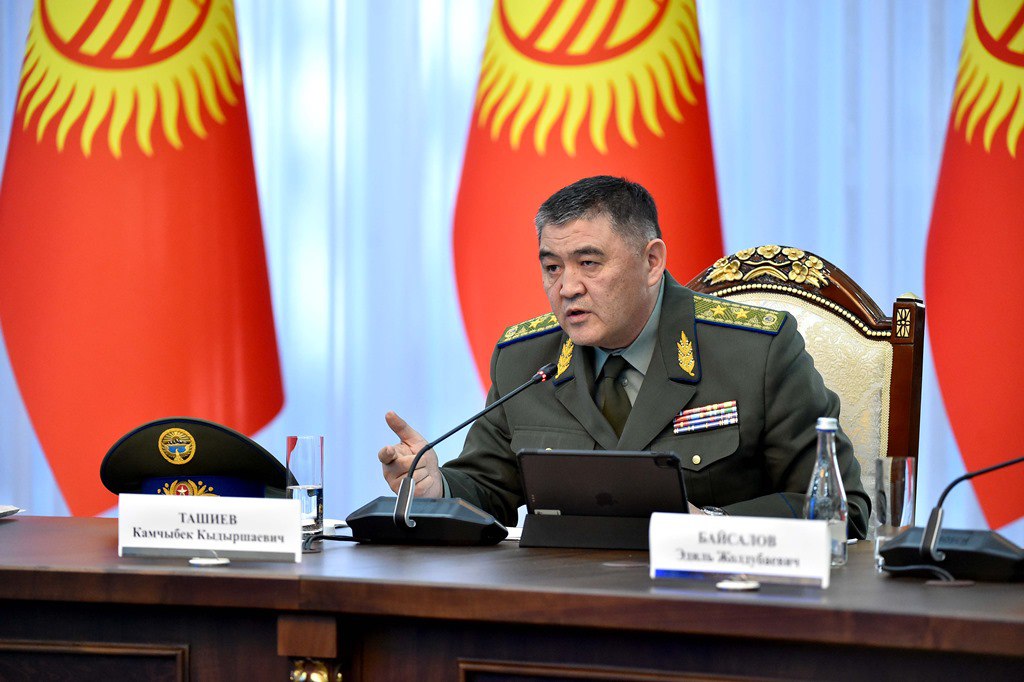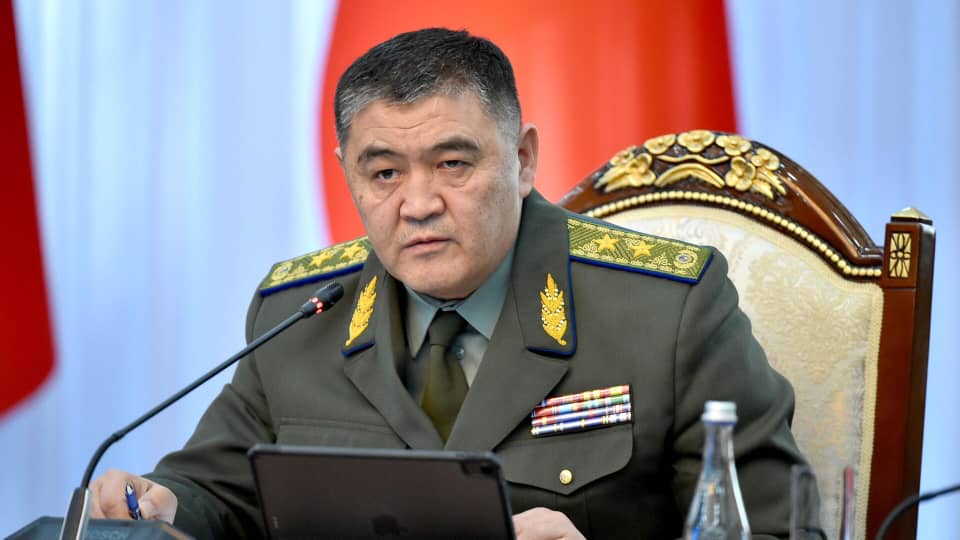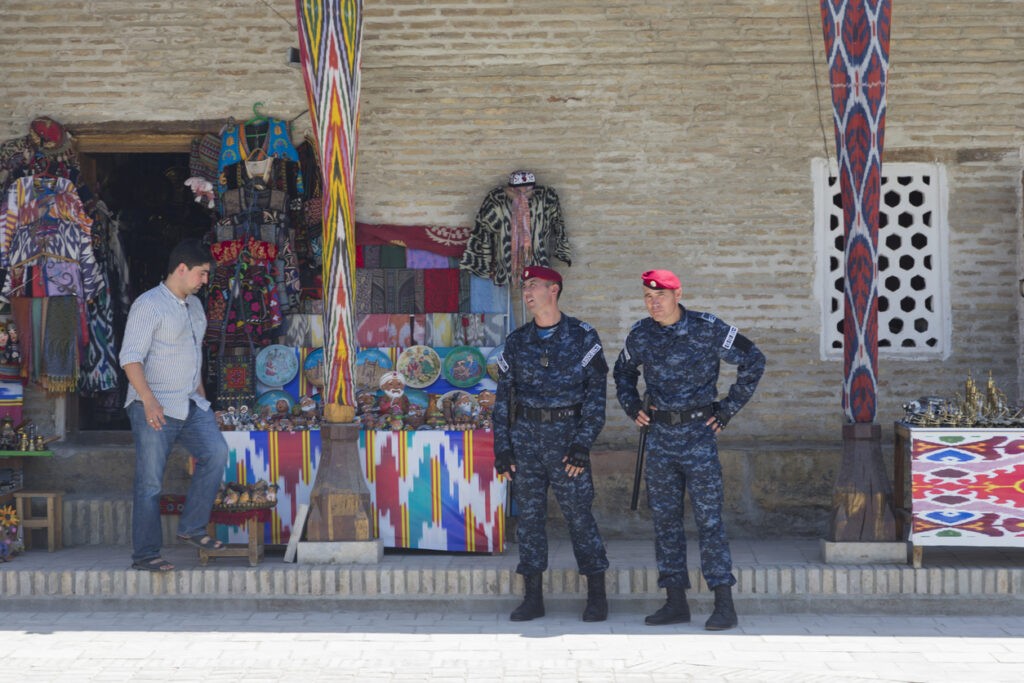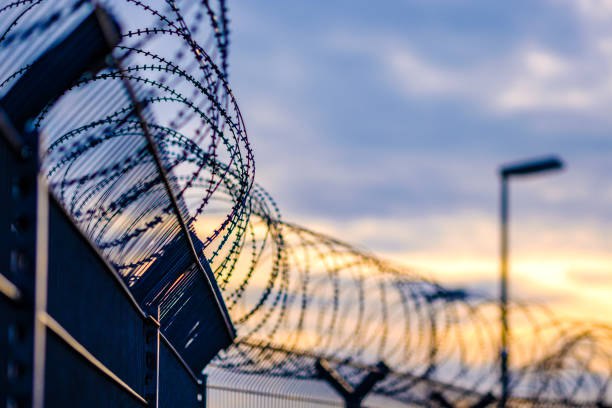The head of Kyrgyzstan’s State Committee for National Security (GKNB), Kamchybek Tashiyev, has been waging a campaign against organized criminal groups in his country for the last few years and it seems he believes in fighting fire with fire.
Speaking to representatives of Kyrgyzstan’s education sector on January 16, Tashiyev referred to the fight against organized crime, specifically mentioning the slain reputed crime boss Kamchybek Kolbayev.
“I had to take the decision to liquidate the thief in law,” Tashiyev said, “for the sake of the state. And I made this decision, and we eliminated him.”
He quickly regretted such candor after his comments received wide coverage and has revised his version of events leading up to Kolbayev’s killing.
The Gangster
Kamchybek Kolbayev, aka Kolya Kyrgyz, was allegedly the kingpin of Kyrgyzstan’s criminal world.
The term “thief in law” originated in Soviet prisons among inmates who were high-ranking figures in organized criminal groups. This tradition continued after the fall of the USSR and the “Brothers’ Circle” of top thieves in law connects criminal organizations in former Soviet republics.
Kolbayev seemed indeed to be a thief in law and according to the U.S. State Department, he was part of the Brothers’ Circle, and back in 2007 it was said that Kolbayev was the “leader of the most influential criminal group” in Kyrgyzstan.
Kolbayev had been imprisoned more than once, though his prison conditions were not harsh. While in prison in late 2020, a video was posted of Kolbayev and other prisoners enjoying a small feast and singing.
He seemed untouchable.
The Raid
On October 4, 2023, the GKNB’s special Alfa unit raided the Blonder Pub in Bishkek, looking for Kolbayev. Reports from that day said the GKNB intended to detain Kolbayev as a suspect in murder of another criminal figure in July 2022. According to the GKNB, Kolbayev offered armed resistance and was shot dead when the GKNB commandos returned fire.
Given the lenient treatment Kolbayev had so often received from Kyrgyz authorities, it seemed strange he chose to open fire on law enforcement officers rather than submit to being gently detained, as he had been before, and possibly incarcerated in luxury prison conditions.
However, Kolbayev was an odious figure in Kyrgyzstan, greatly feared by many and the circumstances of his death did not seem to matter to most people, so long as he was gone.
A ‘Hit’?
On January 16, Tashiyev explained to deputy education and science ministers, university rectors, and other directors of institutions of higher learning that the organized crime structure in Kyrgyzstan had grown strong and had extended across the country.
Tashiyev said the criminal network was preying upon businesses and individuals. “We were forced to take necessary measures,” Tashiyev declared, and then stated he had given the order for Kolbayev to be eliminated.
He added that the GKNB’s campaign against organized crime was a success. Kyrgyzstan had become “the only country in Central Asia… and probably in the post-Soviet countries, that does not have organized crime.”
It was an “ends justify the means” argument. Media seized upon it as an amazing admission from a security chief about apparently ordering an assassination, albeit of a known crime boss.
On January 18, Tashiyev met with journalists to clarify his comments of two days earlier.
“There was no personal order to liquidate Kolbayev,” Tashiyev said, and repeated the original GKNB version of events at the time of Kolbayev’s death. The GKNB went to detain Kolbayev and when he shot at them, they returned fire and killed him.
“Some journalists, especially Western journalists wanted to twist what I said,” Tashiyev claimed.
However, several media outlets posted a video of Tashiyev speaking at the January 16 meeting with educators and exactly saying that he gave the order to eliminate Kolbayev.
And it was not only, or even mainly, Western journalists who reported on the comments. Domestic media outlets such as Kaktus Media, AKIpress, 24.kg, and Vecherny Bishkek, all reported on Tashiyev’s order to terminate Kolbayev.
Quit while you’re ahead
The GKNB’s battle against organized criminal groups in Kyrgyzstan has been successful.
Shortly after Kolbayev’s death, Kyrgyz authorities began releasing videos of leading local criminal figures renouncing their life of crime and vowing to become law-abiding citizens.
Other members of organized criminal groups have also been arrested and imprisoned. The GKNB has exposed government officials with connections to criminal groups and these officials have been dismissed.
The official explanation of Kolbayev’s death even at the time it happened seemed suspicious, if for no other reason than Kolbayev had been arrested before and had not offered any resistance.
The entire matter was water under the bridge until Tashiyev brought it up on January 16. His attempt to rationalize those comments two days later to journalists made it look worse.
Tashiyev would be far from the first head of a country’s security service to order the assassination of a troublesome individual, but it is a topic that is generally not supposed to be talked about publicly.
Ultimately, this slip of the tongue will probably only raise Tashiyev’s prestige with some in Kyrgyzstan, and will certainly give his enemies something to think about.

